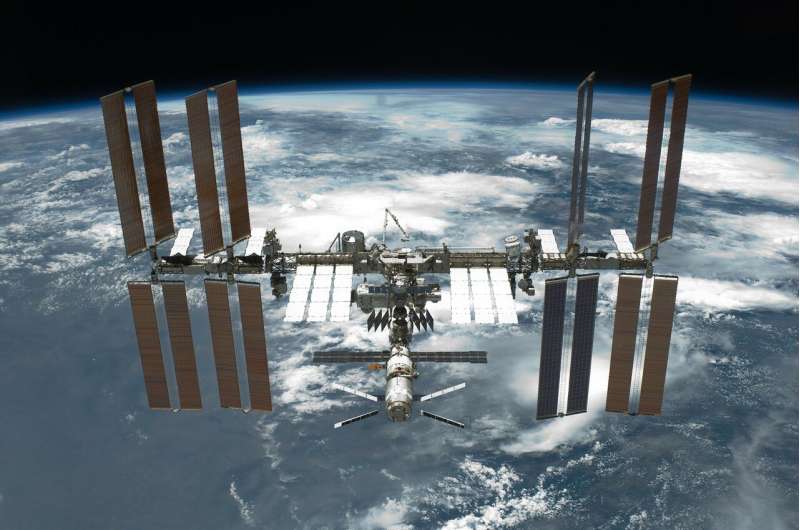This article has been reviewed according to Science X's editorial process and policies. Editors have highlighted the following attributes while ensuring the content's credibility:
fact-checked
reputable news agency
proofread
Astronauts set for spacewalk: Starliner crew staying at ISS longer

A pair of NASA astronauts are scheduled to do a 6.5 hour spacewalk on the morning of June 13 outside the International Space Station.
At 8 a.m. Eastern time, astronauts Tracy C. Dyson and Matthew Dominick are expected to enter the vacuum of space to perform station maintenance and science work.
NASA said the two will remove some communications equipment from one of the ISS' laboratory modules, getting help from a robotic arm on the station. Astronauts Mike Barratt and Jeanette Epps will be maneuvering the Canadarm2 to assist Dyson and Dominick in their work.
Then, Dyson and Dominick will move on to a science experiment involving microorganisms. They will swab surfaces on the ISS to "determine if microorganisms released through station vents can survive the external microgravity environment," NASA said in a statement.
NASA TV will begin its spacewalk broadcast at 6:30 a.m. Thursday. Live coverage will air on NASA+, NASA Television, the NASA app, YouTube, and the agency's website.
Among those watching the spacewalk up close will be Butch Whitmore and Suni Williams, the crew of the Boeing Starliner which launched from the Kennedy Space Center on June 5 en route to the ISS.
Whitmore and Williams learned Tuesday that they will be spending more time on the space station than originally planned.
"Ground teams continue to assess and monitor Starliner's performance and planning for return of the mission no earlier than Tuesday, June 18, pending weather and spacecraft readiness," NASA said.
The space agency also said its teams are continuing to access what impacts, if any, five small helium leaks aboard the Starliner spacecraft would have on Whitmore's and Williams' return to Earth.
"Engineers evaluated the helium supply based on current leak rates and determined that Starliner has plenty of margin to support the return trip from station," NASA said. "Only seven hours of free-flight time is needed to perform a normal end of mission, and Starliner currently has enough helium left in its tanks to support 70 hours of free flight activity following undocking."
While Starliner is docked at the ISS, systems involving the helium leaks have been turned off, preventing further helium loss from the tanks.
Once cleared to return to home, NASA said the Starliner with Wilmore and Williams aboard, "will perform a deorbit burn before entering the atmosphere and landing in the southwestern United States under parachutes and landing airbags to complete the flight."
2024 Orlando Sentinel. Distributed by Tribune Content Agency, LLC.





















